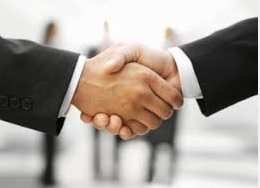 Over the last decade, the United Arab Emirates (UAE), a country with a population of over 9 million, has consistently attracted the world’s attention. With a host of benefits ranging from excellent infrastructure to top-notch services and access to the world’s leading brands, this country is a haven for the highly skilled workforce in the Middle East. Furthermore, the country’s strategic geographical location has proved to be an impetus for global private players to also focus in this region.
Over the last decade, the United Arab Emirates (UAE), a country with a population of over 9 million, has consistently attracted the world’s attention. With a host of benefits ranging from excellent infrastructure to top-notch services and access to the world’s leading brands, this country is a haven for the highly skilled workforce in the Middle East. Furthermore, the country’s strategic geographical location has proved to be an impetus for global private players to also focus in this region.
Foreseeing the future of not being economically driven by a single industry – Oil and Gas – which accounts for 40 per cent of the country’s GDP, the UAE government has undertaken massive steps to shift the focus of its economic growth to various other non-oil sectors, with manufacturing leading the way. Government-led focus on the manufacturing sector has fostered the growth of trade, export, national development and also contributed significantly to employment opportunities within the region.
In line with the government’s vision of economic diversification and following the vision 2021 National Agenda, the UAE government is supporting the development of the manufacturing sector by focusing on creating national policies that promote sustainable growth, investments in education and strong global partnerships.
In a bid to position the Emirate as a world-class manufacturing hub, Dubai has developed one of the largest industrial hubs in the region, offering a range of lucrative facilities beneficial for organizations considering to set up a manufacturing plant. Furthermore, the Department of Economic Development (DED) plays a pivotal role in leading the development of the manufacturing sector within the Emirate, with Dubai’s manufacturing sector accounting for 80% of Dubai’s non-oil trade.
According to reports, UAE’s manufacturing sector accounts for 53% of the country’s total non-oil exports, and is expected to contribute 25% to the country’s overall GDP by 2025. The growth trajectory of UAE’s manufacturing roadmap is noteworthy, making it the second largest contributor to the UAE’s economy. Over the past 6 months alone, the country has seen significant investment from some of the top global brands across industries for setting up its manufacturing facilities within the country.
The Department of Economic Development (DED) indicates that processed food and beverages, plastics and rubber, electrical machinery and equipment, chemicals and products, minerals and products, base metals, publishing and printing, and pearls, precious stones and metals are the major manufacturing sub-sectors.
Mr. Brad Hariharan, Regional Director, Expotrade Middle East, organizers of the GCC Manufacturing Excellence & Technology Summit said, “The government is seeking to transform the driving engines of economic growth, laying emphasis on the manufacturing sector. As the UAE manufacturing landscape continues to evolve, companies are constantly facing pressures to keep up with growing competition. Given this, the GCC Manufacturing Excellence & Technology Summit 2016 proves to be an ideal platform to engage in cross-sector learning and discover the techniques to achieving manufacturing excellence.”
The manufacturing sector growth is expected to continue within the UAE region, with Abu Dhabi emphasizing on heavy industry due to availability of cheaper energy while the Emirates of Dubai and Sharjah wholly focus on services and light industries. There are around 5,200 industrial establishments in UAE with total employment of almost 400,000 workers constantly registering 5% year on year annual growth.
Organizations such as Nestlé Waters, the parent company of brands such as Perrier, San Pellegrino and Acqua Panna, has plans of opening a AED 100 million water bottling factory in Abu Dhabi, while Leminar Air Conditioning Industries has set up GCC’s largest air duct manufacturing factory at a cost of AED 100 million ( USD 27.2 million) in Dubai. Al-Nakheel, part of the Fine Hygienic Holding company, is investing AED 335 million (USD 91 million) to build a 144,000 square metre paper factory producing hygienic household tissues in Abu Dhabi. Ashok Leyland, leading commercial vehicles maker, announced expansion of its Ras Al Khaimah plant in UAE with a fresh investment of USD 10 million. Unilever, one of the world’s leading FMCG companies has initiated the groundbreaking work of its personal care manufacturing site in Dubai Industrial City. This new facility carries a large investment by Unilever and its suppliers which will exceed AED 1 billion. Emirates Aluminium Rolling (Emiroll) has also confirmed to build a new aluminium coil plant in Abu Dhabi, UAE, at an investment of USD 120 million.
The manufacturing industry is getting a significant boost in the region, contributing to the economy, creating new opportunities and more importantly, encouraging new investments in the region. Amidst all this, the GCC Manufacturing Excellence & Technology Summit being held on 14-15 November 2016 at Sofitel Dubai The Palm Resort & Spa becomes an ideal platform to learn from global leaders of technological improvements, new processes that will help achieve operational efficiency, significantly optimize performance, and reduce costs.


